Laulu II Maailmansodasta
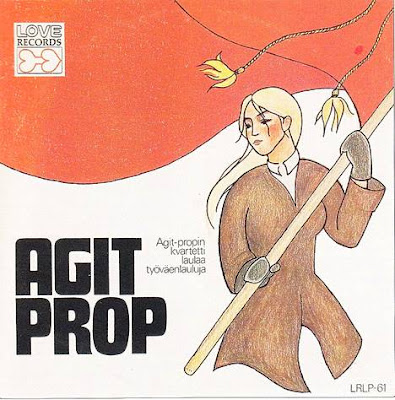
Monesta murhenäytelmästä kertoo ihmiskunnan historia.
(continua)
(continua)
inviata da Riku Venturinen 20/3/2024 - 00:51
Köyhien toivo

[1972]
Testo / Lyrics / Paroles / Sanat: Kaj Chydenius
Canta / Singer / Chante / Laulaa: Miia Vuokkonen
Album / Albumi: Agit-prop -kvartetti laulaa työväenlauluja
(Agit-Prop Quartet sings Working Class Songs
Il Quartetto Agit-Prop canta canzoni dei lavoratori)
Testo / Lyrics / Paroles / Sanat: Kaj Chydenius
Canta / Singer / Chante / Laulaa: Miia Vuokkonen
Album / Albumi: Agit-prop -kvartetti laulaa työväenlauluja
(Agit-Prop Quartet sings Working Class Songs
Il Quartetto Agit-Prop canta canzoni dei lavoratori)
Te ootte jo kyllin kestäneet
(continua)
(continua)
inviata da Riccardo Venturi 11/3/2024 - 22:44
Vietnamissa, Vietnamissa

[1972]
Sävel / Musica / Music / Musique: Kaj Chydenius
Sanat / Testo / Lyrics / Paroles: Aulikki Oksanen
Album / Albumi: Agit-prop -kvartetti laulaa työväenlauluja
(Agit-Prop Quartet sings Working Class Songs
Il Quartetto Agit-Prop canta canzoni dei lavoratori)
Sävel / Musica / Music / Musique: Kaj Chydenius
Sanat / Testo / Lyrics / Paroles: Aulikki Oksanen
Album / Albumi: Agit-prop -kvartetti laulaa työväenlauluja
(Agit-Prop Quartet sings Working Class Songs
Il Quartetto Agit-Prop canta canzoni dei lavoratori)
Vietnamissa, Vietnamissa
(continua)
(continua)
inviata da Riku Ventturinen 10/3/2024 - 23:17
Kylä vuotti uutta kuuta
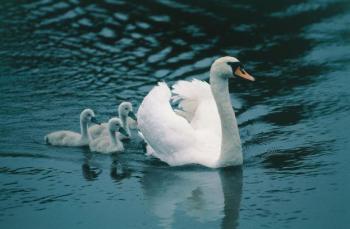
Canzone popolare finlandese (Carelia o Ingria)
A Finnish folksong (from Karelia or Ingria)
Chanson populaire finlandaise (de Carélie ou Ingrie)
Suomalainen kansanlaulu (Karjala vai Inkeri)
Prima attestazione / First recording / Première communication: 1877
Buon anno a tutte e tutti! Ora, magari vi potreste ragionevolmente chiedere perché vi faccia questo augurio il sei di febbraio, quando l’anno è già cominciato da più di un mese; il fatto è che manco dal sito da oltre due mesi. Non è stato un bell’inizio d’annata per il sottoscritto, tra la malattia e la morte di un’amica cara (dalla quale ho ereditato il gatto) e progressivi e inesorabili problemi di vista, almeno fino a quando non si decideranno ad operarmi di un paio di cataratte oculari una delle quali sembra oramai una cataratta del Nilo. Tutto questo mi costringe, tra le altre cose, a leggere e a scrivere con molta difficoltà,... (continua)
A Finnish folksong (from Karelia or Ingria)
Chanson populaire finlandaise (de Carélie ou Ingrie)
Suomalainen kansanlaulu (Karjala vai Inkeri)
Prima attestazione / First recording / Première communication: 1877
Buon anno a tutte e tutti! Ora, magari vi potreste ragionevolmente chiedere perché vi faccia questo augurio il sei di febbraio, quando l’anno è già cominciato da più di un mese; il fatto è che manco dal sito da oltre due mesi. Non è stato un bell’inizio d’annata per il sottoscritto, tra la malattia e la morte di un’amica cara (dalla quale ho ereditato il gatto) e progressivi e inesorabili problemi di vista, almeno fino a quando non si decideranno ad operarmi di un paio di cataratte oculari una delle quali sembra oramai una cataratta del Nilo. Tutto questo mi costringe, tra le altre cose, a leggere e a scrivere con molta difficoltà,... (continua)
Kylä vuotti uutta kuuta,
(continua)
(continua)
inviata da Riccardo Venturi 6/2/2024 - 20:20
Jotakin tapahtuu

Näillä Aila Meriluodon säkeillä toivotan kaikille tämän verkkosivun ylläpitäjille ja ystäville rauhallista joulua ja hyvää uutta vuotta 2023.
Ja katso, kaikki ne valvovat tässä,
(continua)
(continua)
inviata da Juha Rämö 21/12/2022 - 17:13
Putin-setä asuu Venäjällä
anonimo

[2022]
Il punto di partenza di questa “canzoncina attualizzata” sembra essere una simile canzoncina di cinquant'anni fa precisi (1972), intitolata Lenin-setä asuu Venäjällä [*], ovvero “Zio Lenin vive in Russia”. Qui ve la facciamo ascoltare dagli Åttopojat in una registrazione del 2014:
La canzoncina era assolutamente tale: si trattava infatti, in origine, di una canzoncina per bambini vietnamita intitolata Ông Lê Nin ở nước Nga, scritta da tale Nguyễn Hồng Kiên e musicata da Trần Đăng Khoa, nella quale, sulla scorta dello “zio Ho”, diventava zio pure Lenin. La versione finlandese fu preparata da Matti Rossi (1934-2017) sulla base del testo originale vietnamita, e poi composta da Eero Ojanen. Si noti comunque la vocina infantile flautata (e, probabilmente, campionata) con cui è cantata questa canzoncina sugli zii di turno. [RV]
[*] La “Russia” è un caso curioso nella lingua finlandese.... (continua)
Il punto di partenza di questa “canzoncina attualizzata” sembra essere una simile canzoncina di cinquant'anni fa precisi (1972), intitolata Lenin-setä asuu Venäjällä [*], ovvero “Zio Lenin vive in Russia”. Qui ve la facciamo ascoltare dagli Åttopojat in una registrazione del 2014:
La canzoncina era assolutamente tale: si trattava infatti, in origine, di una canzoncina per bambini vietnamita intitolata Ông Lê Nin ở nước Nga, scritta da tale Nguyễn Hồng Kiên e musicata da Trần Đăng Khoa, nella quale, sulla scorta dello “zio Ho”, diventava zio pure Lenin. La versione finlandese fu preparata da Matti Rossi (1934-2017) sulla base del testo originale vietnamita, e poi composta da Eero Ojanen. Si noti comunque la vocina infantile flautata (e, probabilmente, campionata) con cui è cantata questa canzoncina sugli zii di turno. [RV]
[*] La “Russia” è un caso curioso nella lingua finlandese.... (continua)
Putin-setä asuu Venäjällä,
(continua)
(continua)
inviata da Juha Rämö 9/10/2022 - 20:08
Percorsi:
Guerre in Ucraina
Krystallomantia
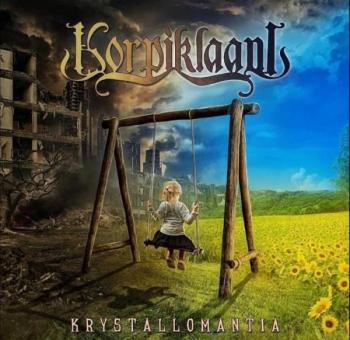
(2022)
Finnish Folk Metal Superstars KORPIKLAANI have released a new single called "Krystallomantia" which sees the band couple their trademark sound with their most politically influenced lyrics to date. The melancholic, yet upbeat anti-war song was written about Ukraine and the ongoing Russian invasion currently happening in that country.
KNAC.COM
Finnish Folk Metal Superstars KORPIKLAANI have released a new single called "Krystallomantia" which sees the band couple their trademark sound with their most politically influenced lyrics to date. The melancholic, yet upbeat anti-war song was written about Ukraine and the ongoing Russian invasion currently happening in that country.
KNAC.COM
On liikkumaton, tanssija eessä
(continua)
(continua)
2/9/2022 - 16:45
Percorsi:
Guerre in Ucraina
Teräksen soitto
Axel Simonen
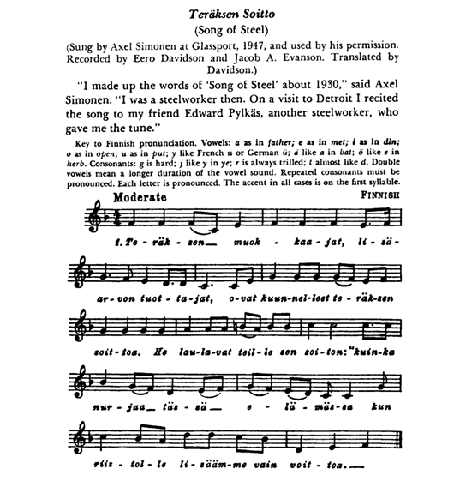
[ ~ 1930 ]
Musica / Music / Musique / Sävel: Edward Pylkäs
Testo / Lyrics / Paroles / Sanat: Axel Simonen
Source: Pennsylvania Songs and Legends, edited by George Korson, University of Pennsylvania Press,
Philadelphia 1949, pp. 451 - 453
Teräksen soitto (Song of Steel)
(Sung by Axel Simonen at Glassport, 1947, and used by his permission. Recorded by Eero Davidson and Jacob A. Evanson. Translated by Davidson).
“I made up the words of 'Song of Steel' about 1930”, said Axel Simonen. “I was a steelworker then. On a visit to Detroit I recited the song to my friend Edward Pylkäs, another steelworker, who gave me the tune”. [Axel Simonen, see Source]
“Finally, this enumeration of ethnic musicians would be incomplete without mention of the men and women writing new song lyrics and music for their countrymen. Some were humble laborers unaccustomed to writing verse or with hardly any musical... (continua)
Musica / Music / Musique / Sävel: Edward Pylkäs
Testo / Lyrics / Paroles / Sanat: Axel Simonen
Source: Pennsylvania Songs and Legends, edited by George Korson, University of Pennsylvania Press,
Philadelphia 1949, pp. 451 - 453
Teräksen soitto (Song of Steel)
(Sung by Axel Simonen at Glassport, 1947, and used by his permission. Recorded by Eero Davidson and Jacob A. Evanson. Translated by Davidson).
“I made up the words of 'Song of Steel' about 1930”, said Axel Simonen. “I was a steelworker then. On a visit to Detroit I recited the song to my friend Edward Pylkäs, another steelworker, who gave me the tune”. [Axel Simonen, see Source]
“Finally, this enumeration of ethnic musicians would be incomplete without mention of the men and women writing new song lyrics and music for their countrymen. Some were humble laborers unaccustomed to writing verse or with hardly any musical... (continua)
Teräksen muokkaajat,
(continua)
(continua)
inviata da Pluck + Juha Rämö + CCG/AWS Staff 5/8/2022 - 20:54
Olen kommunisti
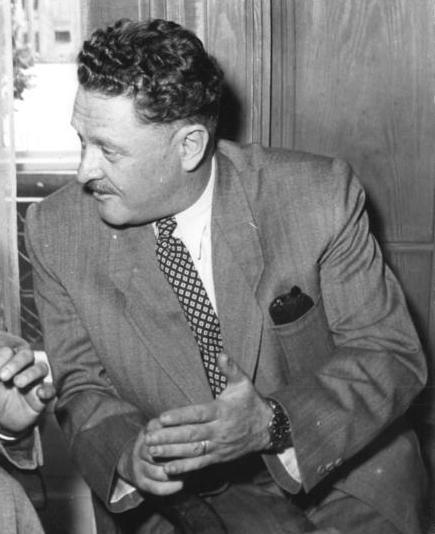
Musica / Music / Musique / Sävel: Eero Ojanen
Testo / Lyrics / Paroles / Sanat: Brita Polttila
The lyrics of this song are based on lines written by Nâzım Hikmet in his 1962 autobiographical novel Yaşamak Güzel Şey Be Kardeşim, translated into English by Mutlu Konuk Blasing and published in 2013 under the title Life's Good, Brother.
For most of his life, Hikmet was persecuted by the Turkish state for his political beliefs. His works were banned in Turkey until 1965. In 2017, 59 years after Hikmet's death, Yaşamak Güzel Şey Be Kardeşim was published by Yapı Kredi Publications, the current owner of Hikmet's copyrights, with a total of 25 parts of the text censored, including these very lines now reading »I'm a worker« instead of »I'm a communist«. So thank you, Mr. Erdoğan, for this and for your recent kind words about Finland and Sweden.
Testo / Lyrics / Paroles / Sanat: Brita Polttila
The lyrics of this song are based on lines written by Nâzım Hikmet in his 1962 autobiographical novel Yaşamak Güzel Şey Be Kardeşim, translated into English by Mutlu Konuk Blasing and published in 2013 under the title Life's Good, Brother.
For most of his life, Hikmet was persecuted by the Turkish state for his political beliefs. His works were banned in Turkey until 1965. In 2017, 59 years after Hikmet's death, Yaşamak Güzel Şey Be Kardeşim was published by Yapı Kredi Publications, the current owner of Hikmet's copyrights, with a total of 25 parts of the text censored, including these very lines now reading »I'm a worker« instead of »I'm a communist«. So thank you, Mr. Erdoğan, for this and for your recent kind words about Finland and Sweden.
Olen kommunisti.
(continua)
(continua)
inviata da Juha Rämö 18/5/2022 - 17:41
Lännen lokari
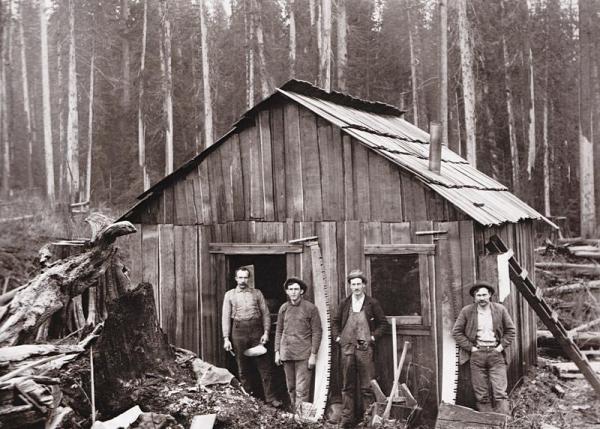
Musica e testo / Music and lyrics / Musique et paroles / Sävel ja sanat: Hiski Salomaa
Recorded for Columbia Records in New York on June 1, 1930
Originally released in 1930
Logging was a common source of livelihood for many Finnish immigrants in North America. This song is a cheerful tribute to those early settlers, the »quiet Finns« who chose an uncertain, itinerant, and often dangerous way of life working as lumberjacks. This, however, is not how Salomaa depicts a logger's life. Instead, the song is all about a logger having a sweetheart wherever destiny takes him – which in real life was probably just a myth in most cases. Salomaa himself never worked as a logger. Instead, he made his living as a tailor and musician.
Recorded for Columbia Records in New York on June 1, 1930
Originally released in 1930
Logging was a common source of livelihood for many Finnish immigrants in North America. This song is a cheerful tribute to those early settlers, the »quiet Finns« who chose an uncertain, itinerant, and often dangerous way of life working as lumberjacks. This, however, is not how Salomaa depicts a logger's life. Instead, the song is all about a logger having a sweetheart wherever destiny takes him – which in real life was probably just a myth in most cases. Salomaa himself never worked as a logger. Instead, he made his living as a tailor and musician.
Täss on lokari 1) ny lännen risukosta,
(continua)
(continua)
inviata da Juha Rämö 29/1/2022 - 15:19
Sota on kaunis

[1987]
Musica e testo / Music and lyrics / Musique et paroles / Sävel ja sanat: Hector
Album / Albumi: Nuku idiootti ("Sleep, idiot")
Single: Päästä Minut Pahasta / Sota On Kaunis
1987, Flamingo FGS 127
Musica e testo / Music and lyrics / Musique et paroles / Sävel ja sanat: Hector
Album / Albumi: Nuku idiootti ("Sleep, idiot")
Single: Päästä Minut Pahasta / Sota On Kaunis
1987, Flamingo FGS 127
On sota välillä kissojen ja koirien,
(continua)
(continua)
inviata da Juha Rämö 23/1/2022 - 13:21
Värssyjä sieltä ja täältä
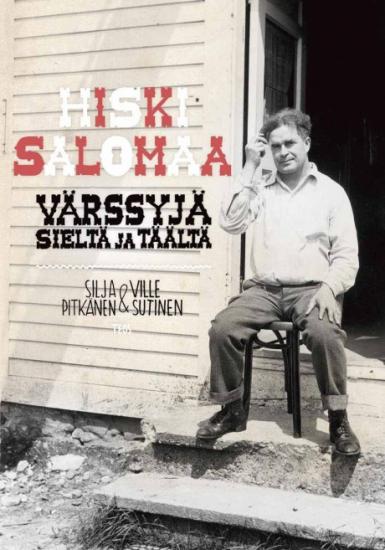
[1931]
Testo e musica / Lyrics and music / Paroles et musique / Sanat ja sävel:
Hiski Salomaa (Hiskias Möttö, Kangasniemi 17-5-1891 – New York 7-7-1957)
In the first half of the 20th century, there was a lively interaction between American Finns and Finnish musicians and performers of the time. The duo Tatu Pekkarinen and Afu Tanner toured the Americas. In the USA, Columbia and RCA recorded Finnish performers and distributed records to immigrant audiences. One of these was Hiski Salomaa.
The childhood of Hiski Salomaa (original name: Hiskias Möttö) is described by researcher Juha Niemelä. “Anna Leena Möttö gave birth to a son on May 17, 1891, whose father was known to be Ananias Romo, the husband of Anna Leena's sister Amanda. The son was named Hezekiah after the Old Testament king.” At first, Anna Leena settled with her son in a small smokehouse for her sister and Romo, in the Tipsalo... (continua)
Testo e musica / Lyrics and music / Paroles et musique / Sanat ja sävel:
Hiski Salomaa (Hiskias Möttö, Kangasniemi 17-5-1891 – New York 7-7-1957)
In the first half of the 20th century, there was a lively interaction between American Finns and Finnish musicians and performers of the time. The duo Tatu Pekkarinen and Afu Tanner toured the Americas. In the USA, Columbia and RCA recorded Finnish performers and distributed records to immigrant audiences. One of these was Hiski Salomaa.
The childhood of Hiski Salomaa (original name: Hiskias Möttö) is described by researcher Juha Niemelä. “Anna Leena Möttö gave birth to a son on May 17, 1891, whose father was known to be Ananias Romo, the husband of Anna Leena's sister Amanda. The son was named Hezekiah after the Old Testament king.” At first, Anna Leena settled with her son in a small smokehouse for her sister and Romo, in the Tipsalo... (continua)
Nyt työtä minä olen taas katsellut,
(continua)
(continua)
inviata da Riccardo Venturi 13/1/2022 - 12:04
Barrikadimarssi
anonimo
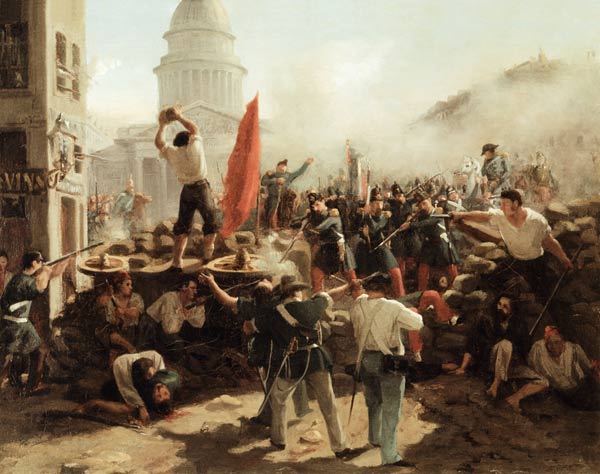
[1905-1906?]
The old, beloved Barricades form now the object of a new song itinerary starting, rather obviously, with one of the most celebrated (and complicated) pages of our database website. Songs about barricades are not, and cannot be, “antiwar” songs: when people were called to the barricades, they were called to fight and resist against -usually well armed- enemies carrying guns and cannons into the core of the cities. The history of barricades is long, both in terms of real, historical events and as a firmly established symbol of people's resistance against oppression. This is why there are so many songs calling to real, physical barricades made of everything thrown down into the streets to form an obstacle, and to ideal barricades made of ideas and ideals, thrown down into people's heads to form an obstacle to any kind of oppression, repression, political and social normalization.
You... (continua)
The old, beloved Barricades form now the object of a new song itinerary starting, rather obviously, with one of the most celebrated (and complicated) pages of our database website. Songs about barricades are not, and cannot be, “antiwar” songs: when people were called to the barricades, they were called to fight and resist against -usually well armed- enemies carrying guns and cannons into the core of the cities. The history of barricades is long, both in terms of real, historical events and as a firmly established symbol of people's resistance against oppression. This is why there are so many songs calling to real, physical barricades made of everything thrown down into the streets to form an obstacle, and to ideal barricades made of ideas and ideals, thrown down into people's heads to form an obstacle to any kind of oppression, repression, political and social normalization.
You... (continua)
Veikot, siskot, barrikadein luo!
(continua)
(continua)
inviata da Riccardo Venturi 11/1/2022 - 18:34
Percorsi:
Barricate
Savonpojan Amerikkaan tulo
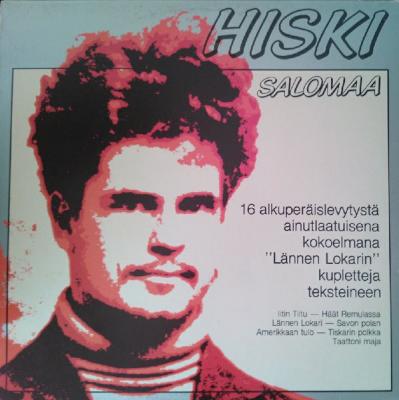
[1927/31]
Testo e musica / Lyrics and music / Paroles et musique / Sanat ja sävel:
Hiski Salomaa (Hiskias Möttö, Kangasniemi 17-5-1891 – New York 7-7-1957)
[Recorded 18.5.1928]
When young Hiskias Möttö (born 17.5.1891 in Kangasniemi, in the southern Savonia region) emigrated to America after his mother died, he was only eighteen years of age. 1909. This must have been the same land-and-sea journey made by thousands of young poor people from the most remote rural areas of Europe, all speaking their native dialects. While listening Hiski Salomaa's song, from southern Savonia, I am thinking of Amerigo, from Pàvana; Liverpool, Le Havre...and then, the endless sea that, however, ends somewhere in a new world, or rather, in the New World. Hiskias Möttö would soon become “Hiski Salomaa”, earning his life as he could in this New World, first as a tailor, then as singer and syndicalist. Nicknamed... (continua)
Testo e musica / Lyrics and music / Paroles et musique / Sanat ja sävel:
Hiski Salomaa (Hiskias Möttö, Kangasniemi 17-5-1891 – New York 7-7-1957)
[Recorded 18.5.1928]
When young Hiskias Möttö (born 17.5.1891 in Kangasniemi, in the southern Savonia region) emigrated to America after his mother died, he was only eighteen years of age. 1909. This must have been the same land-and-sea journey made by thousands of young poor people from the most remote rural areas of Europe, all speaking their native dialects. While listening Hiski Salomaa's song, from southern Savonia, I am thinking of Amerigo, from Pàvana; Liverpool, Le Havre...and then, the endless sea that, however, ends somewhere in a new world, or rather, in the New World. Hiskias Möttö would soon become “Hiski Salomaa”, earning his life as he could in this New World, first as a tailor, then as singer and syndicalist. Nicknamed... (continua)
Myö tänne moahan kottoo ku lähettii
(continua)
(continua)
inviata da Riccardo Venturi 6/1/2022 - 10:26
Lakkolaulu Pajalasta
anonimo
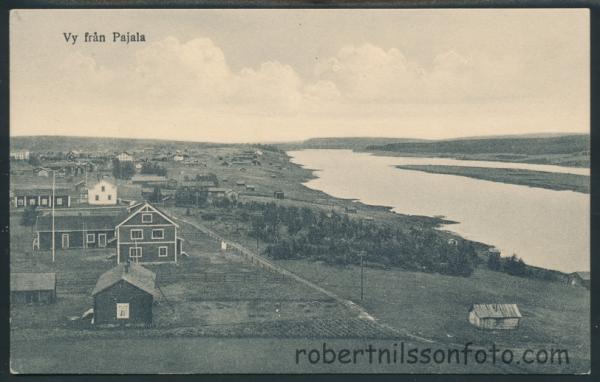
In their 1978 book Edestä aattehen - suomalaisia työväenlauluja 1890 - 1938 (For the Cause - Finnish Working Class Songs 1890 - 1938), Ilpo Saunio and Timo Tuovinen write: »Lakkolaulu Pajalasta (Strike Song from Pajala) is a rare sample of the working class song tradition of Finnish-speaking people living in northern Sweden. It was written in Pajala during the 1930 - 1931 roadworkers' strike. The first labor union of Pajala was established in 1931. In the autumn of 1931, after the National Road Administration had refused to negotiate on wages, the workers called for a strike that continued until spring 1932. The name Anttila in the 4th stanza refers to a person who was recruiting scabs during the strike.«
The Torne is a river in northern Finland and Sweden and, since the annexation of Finland to the Russian Empire in 1809, the official border between the two countries. Throughout history,... (continua)
The Torne is a river in northern Finland and Sweden and, since the annexation of Finland to the Russian Empire in 1809, the official border between the two countries. Throughout history,... (continua)
Taaskin tuli, tuli laulettavaks'
(continua)
(continua)
inviata da Juha Rämö 10/11/2021 - 13:12
Itkuvirsi sodissa kaatuneille
anonimo
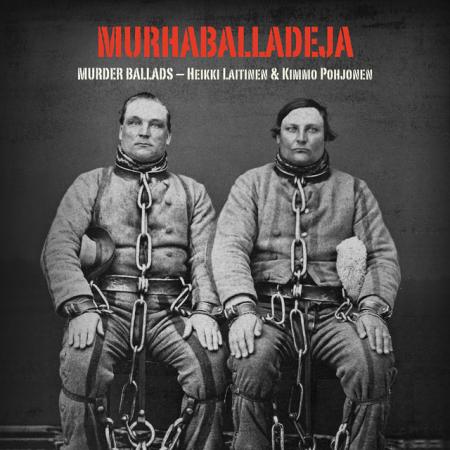
[ab. 1914?]
Recorded by Kimmo Pohjonen and Heikki Laitinen
Album / Albumi: Murhaballadeja [2012]
"Itkuvirsi sodissa kaatuneille is a fine tale of the pioneer of Finnish folk music research, Armas Otto Väisänen. The vocal samples used so well in the performance are from Väisänen’s lament recordings made in Mordova, Russia in 1914. Pohjonen plays the accordion impressively throughout."
Finnish Music Quarterly
This song is called “Lament for Those Fallen in Wars”; it has been recorded by Kimmo Pohjonen and Heikki Laitinen in their (wonderful) 2012 album Murhaballadeja (“Murder Ballads”). I have tried to translate the lyrics, but this task has proved far beyond my current possibilities. I can only grasp the general meaning of the song lyrics, but no full translation is possible to me. I kindly ask Juha Rämö to translate it in no hurry, and thank him in advance. [RV]
Recorded by Kimmo Pohjonen and Heikki Laitinen
Album / Albumi: Murhaballadeja [2012]
"Itkuvirsi sodissa kaatuneille is a fine tale of the pioneer of Finnish folk music research, Armas Otto Väisänen. The vocal samples used so well in the performance are from Väisänen’s lament recordings made in Mordova, Russia in 1914. Pohjonen plays the accordion impressively throughout."
Finnish Music Quarterly
This song is called “Lament for Those Fallen in Wars”; it has been recorded by Kimmo Pohjonen and Heikki Laitinen in their (wonderful) 2012 album Murhaballadeja (“Murder Ballads”). I have tried to translate the lyrics, but this task has proved far beyond my current possibilities. I can only grasp the general meaning of the song lyrics, but no full translation is possible to me. I kindly ask Juha Rämö to translate it in no hurry, and thank him in advance. [RV]
Miksis sie heittelit miun aniarmottomaks,
(continua)
(continua)
inviata da Riccardo Venturi 29/3/2021 - 12:23
Ystävyyden juna
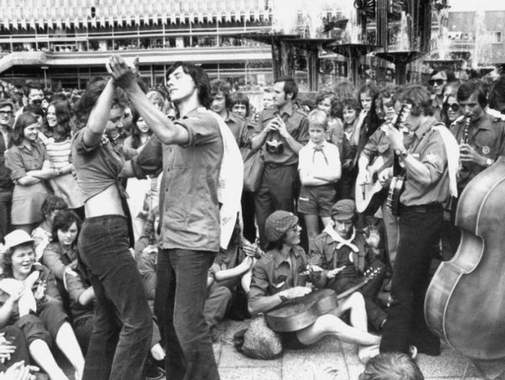
Musica e testo / Music and lyrics / Musique et paroles / Sävel ja sanat: Heimo Anttiroiko
Juna kulki halki laajan aromaan,
(continua)
(continua)
inviata da Juha Rämö 20/10/2020 - 11:37
Percorsi:
Treni
Punaorvon vala tai Sotaorvon vala
anonimo

[ab. 1920? / ca. 1920?]
On January 27th 1918, 100 years ago, the Finnish workers (Red Guards) rebelled and the Finnish Civil War started. The revolution was crushed by the White Guards, and thousands of former Red Guards were executed (Some even without proper trials) and some died in prison camps. Most of the leaders fled to Soviet Russia and founded the Communist Party of Finland. This song is dedicated to the Red Guard orphans whose parents were killed by the mass executions." - Short introduction to this YT Video
La Guerra civile finlandese fu combattuta nell'arco di tre mesi e mezzo, dal 27 gennaio al 15 maggio 1918, per il controllo della Finlandia durante la transizione del paese da granducato dell'Impero Russo a stato indipendente. Da un lato i “Rossi”, guidati da una parte del Partito Socialdemocratico e sostenuti dalla neonata Russia sovietica, dall'altro i “Bianchi”, guidati... (continua)
On January 27th 1918, 100 years ago, the Finnish workers (Red Guards) rebelled and the Finnish Civil War started. The revolution was crushed by the White Guards, and thousands of former Red Guards were executed (Some even without proper trials) and some died in prison camps. Most of the leaders fled to Soviet Russia and founded the Communist Party of Finland. This song is dedicated to the Red Guard orphans whose parents were killed by the mass executions." - Short introduction to this YT Video
La Guerra civile finlandese fu combattuta nell'arco di tre mesi e mezzo, dal 27 gennaio al 15 maggio 1918, per il controllo della Finlandia durante la transizione del paese da granducato dell'Impero Russo a stato indipendente. Da un lato i “Rossi”, guidati da una parte del Partito Socialdemocratico e sostenuti dalla neonata Russia sovietica, dall'altro i “Bianchi”, guidati... (continua)
On luonto jylhä, rajumyrskyt pauhaa
(continua)
(continua)
inviata da Riccardo Venturi 6/9/2020 - 09:11
Muista pestä kädet
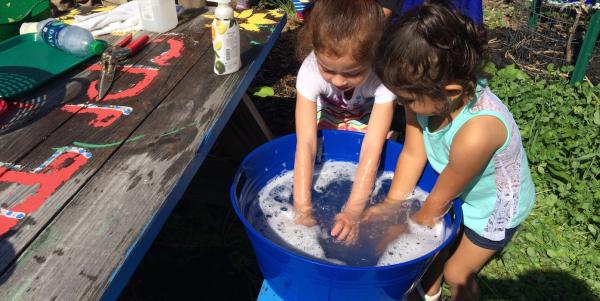
Musica e testo / Music and lyrics / Musique et paroles / Sävel ja sanat: Pauliina Lerche
Here's something a little bit more relaxed to cheer up those of us who are trying to survive in the middle of the austerity and horrors inflicted on us in order to protect the world economy in general and capitalism in particular. The refrain of this childrens' song is performed in sign language.
Here's something a little bit more relaxed to cheer up those of us who are trying to survive in the middle of the austerity and horrors inflicted on us in order to protect the world economy in general and capitalism in particular. The refrain of this childrens' song is performed in sign language.
Maailman toisella puolella on suurensuuri tori,
(continua)
(continua)
inviata da Juha Rämö 25/3/2020 - 20:45
Percorsi:
2020-2023: Canzoniere del COVID-19
Ei kuule kaupunki

Testo finlandese / Finnish lyrics / Paroles finnoises / Suomenkieliset sanat: Tapio Lipponen
This song has been haunting me for years. According to Finnish music database records it's a song written by Mikis Theodorakis which I don't have any doubts about. The problem is that I haven't been able to trace the original one despite extensive research and due to the fact that I don't know a word of Greek. Finnish database records include a French reference reading »Cite n'entend« (which should actually read »La cité n'entend pas«) suggesting that maybe the original lyrics were written in French in which case there wouldn't be any original Greek lyrics. Anyway, in order to get the song finally off my table, I decided to post it as an original Finnish song by Arja Saijonmaa. Doing that, I sincerelly and desperately hope that one of the countless friends and followers of this webpage will be able... (continua)
This song has been haunting me for years. According to Finnish music database records it's a song written by Mikis Theodorakis which I don't have any doubts about. The problem is that I haven't been able to trace the original one despite extensive research and due to the fact that I don't know a word of Greek. Finnish database records include a French reference reading »Cite n'entend« (which should actually read »La cité n'entend pas«) suggesting that maybe the original lyrics were written in French in which case there wouldn't be any original Greek lyrics. Anyway, in order to get the song finally off my table, I decided to post it as an original Finnish song by Arja Saijonmaa. Doing that, I sincerelly and desperately hope that one of the countless friends and followers of this webpage will be able... (continua)
Ei kuule kaupunki, ei näe kaupunki
(continua)
(continua)
inviata da Juha Rämö 14/1/2020 - 13:46
Percorsi:
La Grecia dei Colonnelli, 1967-1974
Työttömän Valssi (Come Around Again Waltz)
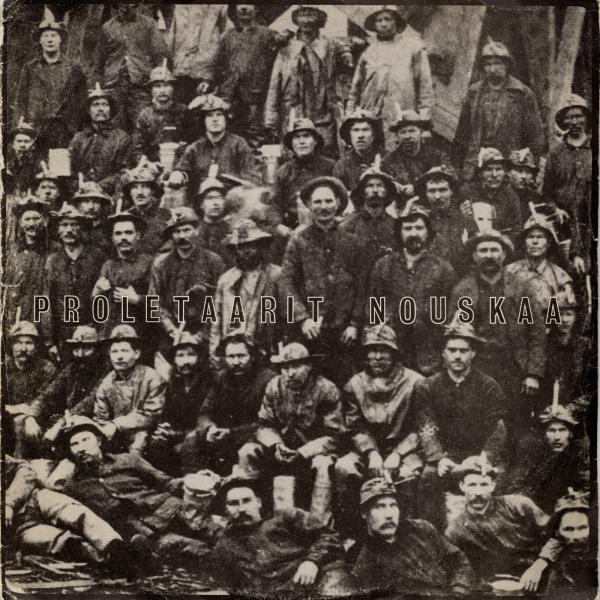
[1927]
Parole e musica di Arthur Kylander (1892-1968), immigrato negli States da Lieto, Finlandia, nel 1914.
Testo trovato in "Arthur Arkadius Kylander – Amerikansuomalainen kupletisti", di Juha Niemelä, 2003
Arthur Kylander fece ogni sorta di lavoro, dal bracciante al boscaiolo, al maggiordomo, all'autista, e solo dopo 30 anni di fatica e privazioni riuscì ad acquistare una fattoria, impegnandosi nella conservazione del patrimonio boschivo.
Arthur Kylander fu anche cantautore e compositore e negli anni 20 incise anche una ventina di suoi brani per l'etichetta Victor. Siccome agli inizi della sua avventura americana fu anche membro dell'IWW (Industrial Workers of The World), alcune della sue canzoni – come questa - parlano della dura vita dei lavoratori immigrati.
Trovo "Työttömän Valssi" incisa nel 1928 da Kosti Tamminen (anche nella raccolta "Proletaarit Nouskaa" del 1970) e molto più recentemente da Mikko Perkoila ("Punikin Kirjelaatikko Ja Muita Työväenlauluja", 2009).
Parole e musica di Arthur Kylander (1892-1968), immigrato negli States da Lieto, Finlandia, nel 1914.
Testo trovato in "Arthur Arkadius Kylander – Amerikansuomalainen kupletisti", di Juha Niemelä, 2003
Arthur Kylander fece ogni sorta di lavoro, dal bracciante al boscaiolo, al maggiordomo, all'autista, e solo dopo 30 anni di fatica e privazioni riuscì ad acquistare una fattoria, impegnandosi nella conservazione del patrimonio boschivo.
Arthur Kylander fu anche cantautore e compositore e negli anni 20 incise anche una ventina di suoi brani per l'etichetta Victor. Siccome agli inizi della sua avventura americana fu anche membro dell'IWW (Industrial Workers of The World), alcune della sue canzoni – come questa - parlano della dura vita dei lavoratori immigrati.
Trovo "Työttömän Valssi" incisa nel 1928 da Kosti Tamminen (anche nella raccolta "Proletaarit Nouskaa" del 1970) e molto più recentemente da Mikko Perkoila ("Punikin Kirjelaatikko Ja Muita Työväenlauluja", 2009).
Kun kuljin mä kulkurin lailla,
(continua)
(continua)
inviata da Bernart Bartleby 11/1/2020 - 21:43
Työtön, hullu ja eläkeläinen
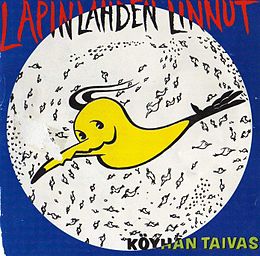
[1994]
Testo e musica / Sanat ja sävel / Lyrics and music / Paroles et musique: Lapinlahden Linnut
Album / Albumi : Köyhän taivas
La band Lapinlahden Linnut (“Uccelli di Lapinlahti”; Lapinlahti è un comune della regione finlandese del Savo settentrionale, Pohjois-Savo), fa, dal 1983, rock e pop satirico e umoristico. È nata come un gruppo di musicisti di strada. Suonano spesso strumenti alquanto “alternativi”, come faldoni di cartone (di cui sono riconosciuti maestri) o casse di birra vuote. Dal loro album del 1994, Köyhän taivas (“Il paradiso del povero”), questo piccolo capolavoro della Mort au Travail: uno sbraco totale, finalmente. Fare quello che si vuole, mangiare schifezze quando si vuole, non sentire più gli ordini di “capi” deficienti, dormire fino a tardi e niente più camicia di forza alla sera, perché -come tutti sanno- il lavoro fa diventare pazzi. Altro che andare a guardare... (continua)
Testo e musica / Sanat ja sävel / Lyrics and music / Paroles et musique: Lapinlahden Linnut
Album / Albumi : Köyhän taivas
La band Lapinlahden Linnut (“Uccelli di Lapinlahti”; Lapinlahti è un comune della regione finlandese del Savo settentrionale, Pohjois-Savo), fa, dal 1983, rock e pop satirico e umoristico. È nata come un gruppo di musicisti di strada. Suonano spesso strumenti alquanto “alternativi”, come faldoni di cartone (di cui sono riconosciuti maestri) o casse di birra vuote. Dal loro album del 1994, Köyhän taivas (“Il paradiso del povero”), questo piccolo capolavoro della Mort au Travail: uno sbraco totale, finalmente. Fare quello che si vuole, mangiare schifezze quando si vuole, non sentire più gli ordini di “capi” deficienti, dormire fino a tardi e niente più camicia di forza alla sera, perché -come tutti sanno- il lavoro fa diventare pazzi. Altro che andare a guardare... (continua)
Me ollaan työtön hullu ja eläkeläinen
(continua)
(continua)
inviata da Riccardo Venturi 3/9/2019 - 20:51
Percorsi:
Mort au Travail / Morte al Lavoro
Työmiehen lauantai
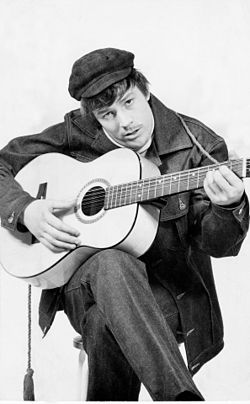
[1965]
Sävel / Music / Musica / Musique: Irwin Goodman [Antti Yrjö Hammarberg, 1943-1991]
Sanat / Lyrics / Testo / Paroles: Emil von Retee [Veikko Olavi »Vexi« Salmi, 1942-2020]
Single : 1965
Albumi / Album: Irwinismi [1966]
Sävel / Music / Musica / Musique: Irwin Goodman [Antti Yrjö Hammarberg, 1943-1991]
Sanat / Lyrics / Testo / Paroles: Emil von Retee [Veikko Olavi »Vexi« Salmi, 1942-2020]
Single : 1965
Albumi / Album: Irwinismi [1966]
Viideltä saunaan ja kuudelta putkaan
(continua)
(continua)
inviata da Riccardo Venturi 10/7/2019 - 21:40
Esplanadi
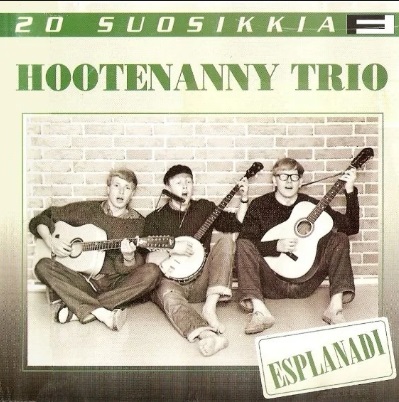
[1966]
Sanat ja sävel / Testo e musica / Lyrics and music / Paroles et musique: Keijo Räikkönen
Hootenanny Trio: Pertti Reponen - Keijo Räikkönen - Juhani Joutsenniemi
Albumi / Album: Esplanadi [1966]
Esplanadi - 20 suosikkia [1997]
La discesa agli inferi di un uomo che ha perso il lavoro: in sintesi, è questa la storia di questa canzone dello Hootenanny Trio, formato nel 1964 da Pertti Reponen (1941-1998), Keijo Räikkönen (1945) e Juhani Joutsenniemi, e scioltosi nel 1971 con all'attivo tre album. Il brano proviene proprio dal primo album omonimo, Esplanadi del 1966. La Esplanadi (cioè, proprio “Spianata”, ripreso dal francese esplanade “piazzale”) è, come tutti sanno, è il “salotto” di Helsinki: un piazzale e parco urbano di grande bellezza, realizzato nel 1818 dall'architetto Carl Ludwig Engel. Sull'Esplanadi si trova il ristorante Kappeli, un locale di lusso dove una persona si... (continua)
Sanat ja sävel / Testo e musica / Lyrics and music / Paroles et musique: Keijo Räikkönen
Hootenanny Trio: Pertti Reponen - Keijo Räikkönen - Juhani Joutsenniemi
Albumi / Album: Esplanadi [1966]
Esplanadi - 20 suosikkia [1997]
La discesa agli inferi di un uomo che ha perso il lavoro: in sintesi, è questa la storia di questa canzone dello Hootenanny Trio, formato nel 1964 da Pertti Reponen (1941-1998), Keijo Räikkönen (1945) e Juhani Joutsenniemi, e scioltosi nel 1971 con all'attivo tre album. Il brano proviene proprio dal primo album omonimo, Esplanadi del 1966. La Esplanadi (cioè, proprio “Spianata”, ripreso dal francese esplanade “piazzale”) è, come tutti sanno, è il “salotto” di Helsinki: un piazzale e parco urbano di grande bellezza, realizzato nel 1818 dall'architetto Carl Ludwig Engel. Sull'Esplanadi si trova il ristorante Kappeli, un locale di lusso dove una persona si... (continua)
Sinä yönä minä itkin yksin murheissain.
(continua)
(continua)
inviata da Riccardo Venturi 27/6/2019 - 05:37
Tuo kerta rajalle rauha
anonimo
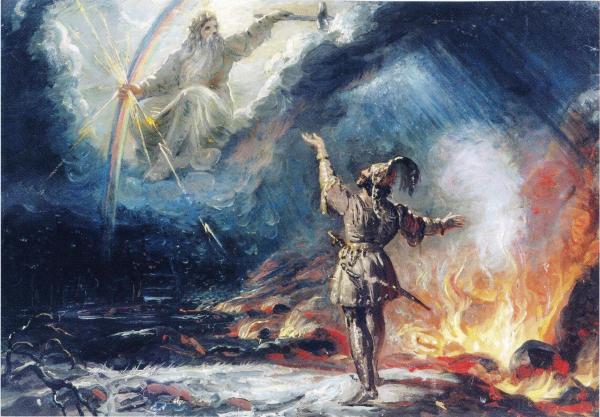
Testo / Lyrics / Paroles / Sanat (Kanteletar)
Musica / Music / Musique / Sävel: trad.
The audio sample provided is the traditional melody to which all the poems of the Finnish national epic (Kalevala) as well as many of those included in Kanteletar can be sung.
Audio link to the melody of the song played by (kantele):
Musica / Music / Musique / Sävel: trad.
Painting by Robert Ekman in 1867 called Lemminkäinen tulisella järvellä where Lemminkäinen asks help from Ukko ylijumala with crossing the lake in fire on his route to Pohjolan häät.
Ukko ylijumala (vasemmalla) R. W. Ekmanin Kalevala-maalauksessa Lemminkäinen tulisella järvellä (n. 1867).
Il Dio Ukko a cui Lemminkäinen (a destra) chiede aiuto. Dipinto di Robert Ekman (1867) intitolato Lemminkäinen tulisella järvella
Ukko ylijumala (vasemmalla) R. W. Ekmanin Kalevala-maalauksessa Lemminkäinen tulisella järvellä (n. 1867).
Il Dio Ukko a cui Lemminkäinen (a destra) chiede aiuto. Dipinto di Robert Ekman (1867) intitolato Lemminkäinen tulisella järvella
The audio sample provided is the traditional melody to which all the poems of the Finnish national epic (Kalevala) as well as many of those included in Kanteletar can be sung.
Audio link to the melody of the song played by (kantele):
Oi Ukko [1] ylinen herra,
(continua)
(continua)
inviata da Juha Rämö 1/5/2019 - 12:29
Varjele Jumala soasta
anonimo
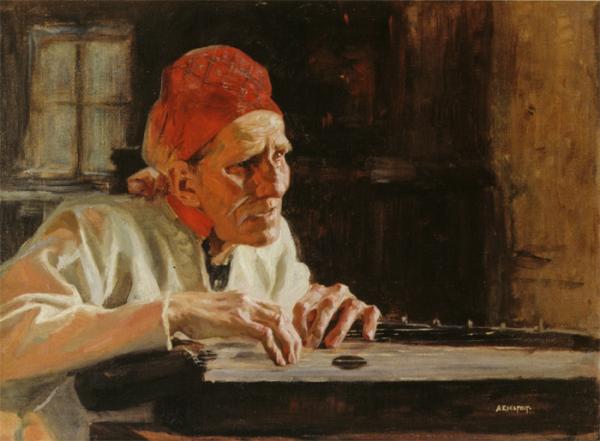
Testo / Lyrics / Paroles / Sanat: Kanteletar (https://en.wikipedia.org/wiki/Kanteletar)
Musica / Music / Musique / Sävel: trad.
The audio sample provided is the traditional melody to which all the poems of the Finnish national epic Kalevala) as well as many of those included in Kanteletar can be sung.
Musica / Music / Musique / Sävel: trad.
The audio sample provided is the traditional melody to which all the poems of the Finnish national epic Kalevala) as well as many of those included in Kanteletar can be sung.
Varjele vakainen luoja,
(continua)
(continua)
inviata da Juha Rämö 30/4/2019 - 15:39
Kun mun kultani tulisi
anonimo
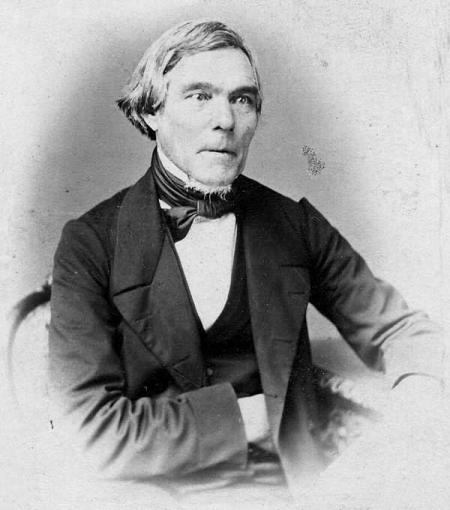
Testo / Lyrics / Paroles / Sanat: Kanteletar
Musica / Music / Musique / Sävel: trad.
This song, inspired by Riccardo Venturi's recent contribution, has little to do with antiwar themes and issues. Instead, its all about unconditional love, and if hatred is the fuel of war, love works exactly the opposite way. Therefore, I sincerely hope that this beautiful song will find its niche on this website.
This poem is known to exist in a total of 157 versions of which three are introduced here. The one best known in Finland is this VERSION 1 from Kanteletar, a collection of Finnish folk poetry gathered by Elias Lönnrot during several expeditions in the 1820s and 30s and first published in 1840.
Throughout centuries, the oral tradition of Finnish and Karelian folk poetry was kept alive and passed on from generation to generation by rune singers reciting, or actually singing, poems in simple and... (continua)
Musica / Music / Musique / Sävel: trad.
This song, inspired by Riccardo Venturi's recent contribution, has little to do with antiwar themes and issues. Instead, its all about unconditional love, and if hatred is the fuel of war, love works exactly the opposite way. Therefore, I sincerely hope that this beautiful song will find its niche on this website.
This poem is known to exist in a total of 157 versions of which three are introduced here. The one best known in Finland is this VERSION 1 from Kanteletar, a collection of Finnish folk poetry gathered by Elias Lönnrot during several expeditions in the 1820s and 30s and first published in 1840.
Throughout centuries, the oral tradition of Finnish and Karelian folk poetry was kept alive and passed on from generation to generation by rune singers reciting, or actually singing, poems in simple and... (continua)
Kun mun kultani tulisi,
(continua)
(continua)
inviata da Juha Rämö 24/4/2019 - 20:36
Percorsi:
Canzoni d'amore contro la guerra
Velisurmaaja
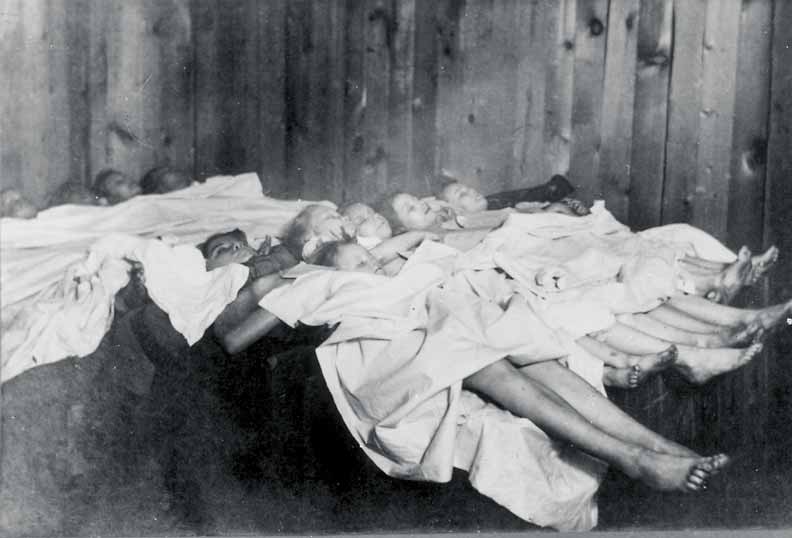
[?]
Suomalainen kansanlaulu
Ballata popolare finlandese
A Finnish folk ballad
Ballade populaire finlandaise
Velisurmaaja (The Fratricide) is a (very) old Finnish folksong. One of the many gruesome, cruel and highly dramatic murder ballads which are so common in all European balladries. The ballad comes probably from the same, widespread ballad stock of the well known Scottish Edward (Child #13, ”Quhy dois zour sword sae drap wi' bluid, Edward, Edward?”, in Percy's fake-antique spelling) and of Danish Sven i Rosengård: a striking, breathtaking dialogue between a mother and his son, in which he gradually reveals and confesses he has killed his (usually older) brother, pressed by his mother's precise questions, because the latter has "made his wife laugh" (i.e., he was making love with her). This is not the first old murder ballad included in this website: another specimen is French L'écolier... (continua)
Suomalainen kansanlaulu
Ballata popolare finlandese
A Finnish folk ballad
Ballade populaire finlandaise
Velisurmaaja (The Fratricide) is a (very) old Finnish folksong. One of the many gruesome, cruel and highly dramatic murder ballads which are so common in all European balladries. The ballad comes probably from the same, widespread ballad stock of the well known Scottish Edward (Child #13, ”Quhy dois zour sword sae drap wi' bluid, Edward, Edward?”, in Percy's fake-antique spelling) and of Danish Sven i Rosengård: a striking, breathtaking dialogue between a mother and his son, in which he gradually reveals and confesses he has killed his (usually older) brother, pressed by his mother's precise questions, because the latter has "made his wife laugh" (i.e., he was making love with her). This is not the first old murder ballad included in this website: another specimen is French L'écolier... (continua)
Mistäs tulet, kustas tulet, poikani iloinen?
(continua)
(continua)
inviata da Riccardo Venturi 18/4/2019 - 00:19
Oi sodan surkeutta
anonimo
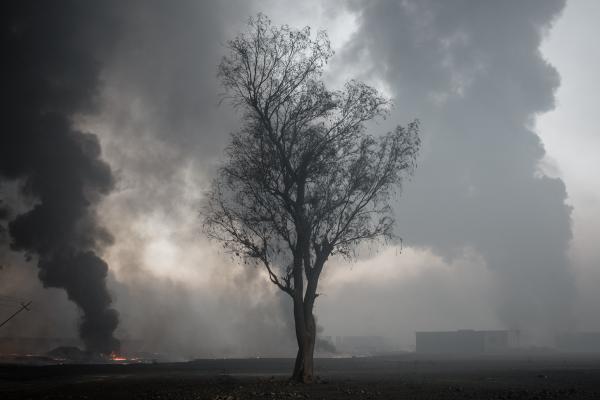
This little song, powerful in all its simplicity, came to my mind when translating Ach, Krieg, Krieg!. The origin of the song is unknown. It has been first written down in 1891 for the archives of the Finnish Literature Society and published by Merja Hurri in her 1982 book Rauhanlauluja, Peace Songs.
Oi sodan surkeutta!
(continua)
(continua)
inviata da Juha Rämö 13/4/2019 - 13:16
Ich hab kein Heimatland (Jüdischer Tango)

EI OLE MULLA KOTIMAATA
(continua)
(continua)
inviata da Juha Rämö 21/1/2019 - 12:16
Balladen om Rune Henry Johansson

BALLADI RUNE HENRY JOHANSSONISTA
(continua)
(continua)
inviata da Juha Rämö 18/1/2019 - 15:23
Bertolt Brecht: Die Lösung
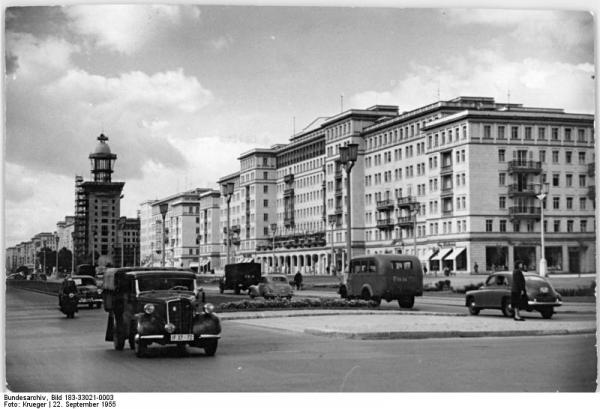
Tämä runo, jonka Bertolt Brecht kirjoitti kesällä 1953 mutta joka julkaistiin ensimmäisen kerran vasta 1959 Die Welt -lehdessä, on kriittinen kannanotto kesäkuun 17. päivän kansannousuun DDR:ssä vuonna 1953.
RATKAISU
(continua)
(continua)
inviata da Juha Rämö 6/1/2019 - 13:37
Dendrocronologia
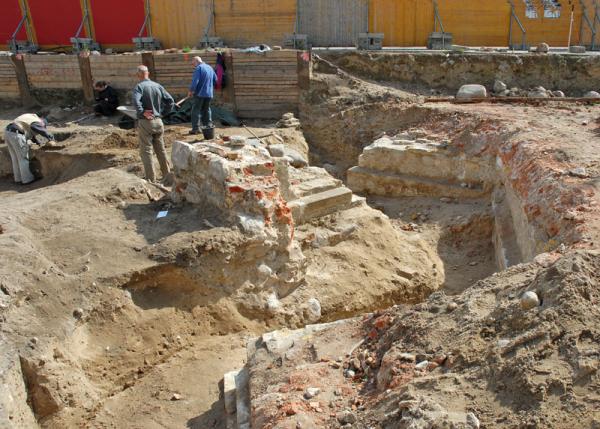
Dendrochronology, or tree-ring dating, is an amazing branch of science. Not only can it be used to determine the precise age of a living tree from drilling samples or that of a dead tree from sample discs, but also, on the basis of chronologies developed by painstaking research over a lengthy period of time, to determine when and even where a tree has grown. Furthermore, tree-rings provide valuable data for climate research.
Here's an interesting example: According to a written document referring to Symeon, the vicar of Cölln (Symeon plebanus de Colonia), 1237 has always been regarded as the year of founding of the German capital Berlin. In 2008, archaeological excavations in Petriplatz (St. Peter's Square in Cölln) revealed an oak beam dating back to 1183 and suggesting that the history of Berlin may well have to be rewritten.
Here's an interesting example: According to a written document referring to Symeon, the vicar of Cölln (Symeon plebanus de Colonia), 1237 has always been regarded as the year of founding of the German capital Berlin. In 2008, archaeological excavations in Petriplatz (St. Peter's Square in Cölln) revealed an oak beam dating back to 1183 and suggesting that the history of Berlin may well have to be rewritten.
LUSTOJEN KERTOMAA
(continua)
(continua)
inviata da Juha Rämö 4/1/2019 - 14:36
Die Kinder vom Bullenhuser Damm
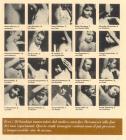
BULLENHUSER DAMMIN 1) LAPSET
(continua)
(continua)
inviata da Juha Rämö 2/1/2019 - 11:59
Die Erde war nicht immer so

MAA EI OLE AINA OLLUT TÄLLAINEN
(continua)
(continua)
inviata da Juha Rämö 1/1/2019 - 14:17
Eine kleine deutsche Kantate in C major, oder Kleine Freimaurerkantate, K619

PIENI SAKSALAINEN KANTAATTI C-DUURISSA
(continua)
(continua)
inviata da Juha Rämö 26/12/2018 - 12:20
16. Dein, Herr, ist die Kraft
SINUN ON VOIMA, HERRA
(continua)
(continua)
inviata da Juha Rämö 24/12/2018 - 13:02
×
![]()

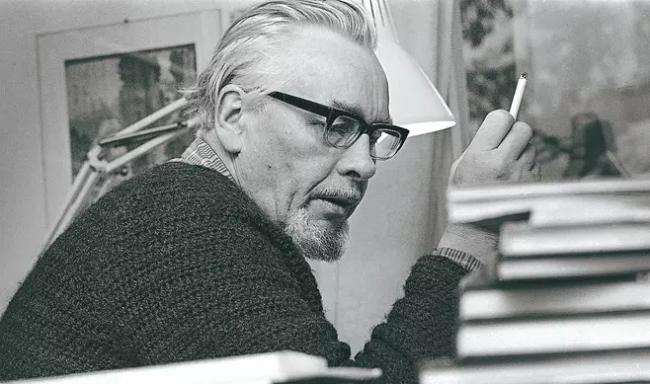
![Un capretto [Dona, dona]](img/thumb/c5848_130x140.jpeg?1328626605)


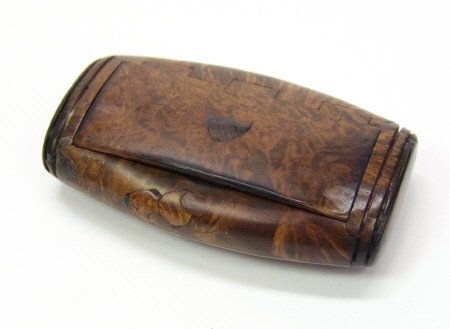
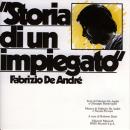
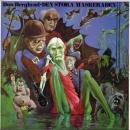


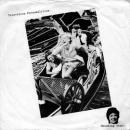

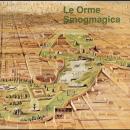



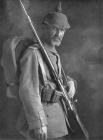



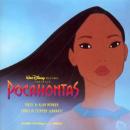
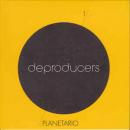







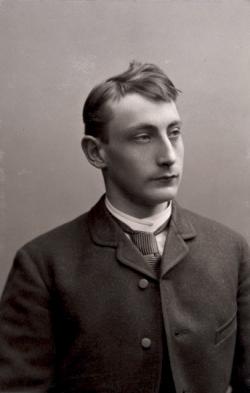
Testo / Lyrics / Paroles / Sanat: Raija Laroma
Musica / Music / Musique / Sävel: Heikki Valpola
Album / Albumi: Agit-Propin kvartetti laulaa työväenlauluja
L’intera II guerra mondiale raccontata in una canzone? Ebbene sì. O meglio: almeno una parte della II guerra mondiale; ma non è comunque poco. Poiché gli Agit-Prop erano un quartetto non solo dichiaratamente comunista, ma anche espressione diretta del Partito Comunista Finlandese -e su questo torneremo in seguito), è lecito attendersi una canzone assolutamente ortodossa dal punto di vista storico: il suo testo, scritto dalla scrittrice Raija Laroma, è un’enunciazione puntuale dei dettami storici ufficiali di provenienza sovietica, il tutto su una musica cadenzata (composta da Heikki Valpola) di sentore Brechtiano (o meglio, Eisleriano). Ciononostante, vi sono espressi alcuni concetti innegabili, così come ve ne sono scrupolosamente... (continua)